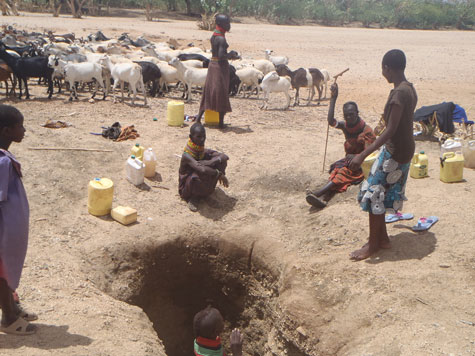×
The Standard e-Paper
Home To Bold Columnists
By Cavince Adhere
 |
| Turkana Women patiently wait to give water to their animals [Photo:Cavince Adhere] |
Before 1960, Turkana region enjoyed unparalleled success. Large herds of livestock and camels roamed freely in the expansive land.